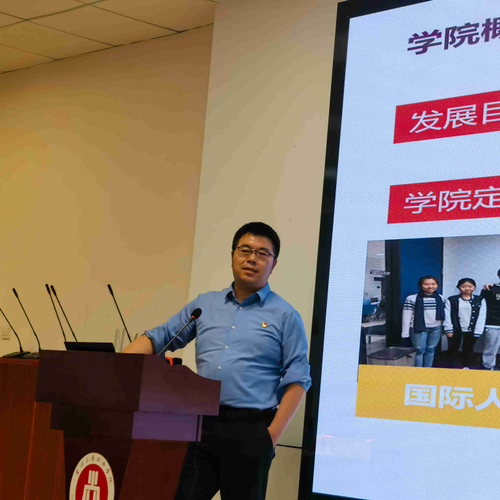著名大学行为经济学(金融)教案
UCLA行为经济学教案
Mini-Course in Psychology and Economics - Spring, 2003 Leeat Yariv The goal of this mini-course is to give an overview of the state of the art of psychology and economics. We will focus on some aspects of decision making, static and dynamic. Attached below is the course outline and reading list. Required readings are asterisked. Talking with me: Please stop by and tell me about your research! I will be seating in room 211. Tentative office hours are Sundays and Tuesdays, 14:00-16:00. You can also contact me by e-mail: lyariv@econ.ucla.edu. Requirements: A final exam or a short original paper, depending on class size and preferences. Course Outline Very Brief Intro – What is this field of psychology and economics? Static Decision Making a. Single Agent Decision Making 1. Judgment Under Uncertainty – heuristics in decision making and consequential biases. 2. Prospect Theory – experiments and theory parting from expected utility theory. 3. Prospect Theory applied – mental accounting and consumer choice. 4. An affectionately contaminated theory? The effects of emotions and moods on decision making. b. Multiple Agent Decision Making 5. Fairness and diversity of preferences – experimental evidence and some theories. 6. Diversity of cognitive sophistication – experiments and theory of one shot game behavior. Dynamic Decision Making 7. Thumbs up or down on exponential discounting? Experimental evidence on intertemporal choices and corresponding theories. 8. Forming beliefs – cognitive dissonance and confirmatory bias. 9. Learning - Reinforcement learning and case-based decision theory 2 Reading List Recommended Books · Kahneman, D., Slovic, P. and Tversky, A. (Eds.) [1982], Judgment under uncertainty: Heuristics and biases, Cambridge: Cambridge University. · Thaler, R. H. [1992], The Winner’s Curse: Paradoxes and Anomalies of Economic Life, Princeton, N. J.: Princeton University Press. 1. Judgment Under Uncertainty · * Tversky, A. and Kahneman, D. [1974], “Judgment under Uncertainty: Heuristics and Biases,” Science, pp. 1124-1131 (JSTOR). · Kahneman, D., Slovic, P. and Tversky, A. (Eds.) [1982], Judgment under uncertainty: Heuristics and biases, Cambridge: Cambridge University. 2. Prospect Theory · * Kahneman, D. and Tversky, A. [1979], “Prospect Theory: An Analysis of Decision Under Risk,” Econometrica, 47(2), pp. 263-291 (JSTOR). · * Tversky, A. and Kahneman, D. [1992], “Advances in Prospect Theory: Cumulative Representation of Uncertainty,” Journal of Risk and Uncertainty, 5, pp. 297-323. · Harbaugh, B., Krause, K., and Vesterlund, L. [2003], “Prospect Theory in Choice and Pricing Tasks,” mimeo (available at: http://www.pitt.edu/~vester/PTChoicePrice.pdf). 3. Applications of Prospect Theory – Mental Accounting and Consumer Choice · Plott, C. R. and Zeiler, K. [2003], “The Willingness to Pay/WIllingness to Accept Gap, the "Endowment Effect," Subject Misconceptions and Experimental Procedures for Eliciting Valuations,” mimeo (available at: http://research.cassel.ucla.edu/charlieplott.PDF). · Thaler, R. H. [1994], Quasi Rational Economics, Russel Sage Foundation/New York, chapters 1-3. · Thaler, R. H., Kahneman, D., Knetch, J. [1992], “The Endowment Effect, Loss Aversion, and Status Quo Bias,” The Winner’s Curse, New York: Free Press. 3 · * Thaler, R. H. [1992], “Savings, Fungibility, and Mental Accounts,” The Winner’s Curse, New York: Free Press. 4. Emotions and Economic Theory · Isen, A. M., “Positive Affect and Decision Making.” In Lewis, M. and Haviland, J. M. (Eds.), Handbook of Emotions, NY: Guilford. · Johnson and Tversky [1983], “Affect, Generalization, and The Perception of Risk,” Journal of Personality and Social Psychology. 5. Fairness · * Fehr, E. and Schmidt, K. M. [1999], “A Theory of Fairness, Competition, and Cooperation,” Quarterly Journal of Economics, vol. 114, pages 817-868 (original version available at: http://www.iew.unizh.ch/wp/iewwp004.pdf). · * Levine, D. K. [1998], “Modeling Altruism and Spitefulness in Experiments,” Review of Economic Dynamics, vol. 1, pages 593-622. · * Rabin, M. [1993], “Incorporating Fairness into Game Theory and Economics," American Economic Review, vol. 83, pages 1281-1302 (JSTOR). · * Thaler, R. H. [1994], Quasi Rational Economics, Russel Sage Foundation/New York, chapters 10 and 11. 6. Cognitive Hierarchies · * Camerer, C., Ho, T., and Chong, J. [2002], “A Cognitive Hierarchy Theory of One-shot Games.” Mimeo (available at: http://research.cassel.ucla.edu/ColinCamerer.pdf) · * Costa-Gomes, M., Crawford, V. P., and Broseta, B. [2001], “Cognition and Behavior in Normal-Form Games: An Experimental Study,” Econometrica, Vol. 69, pages 1193-1235 (available at: http://weber.ucsd.edu/~vcrawfor/). · Nagel, R. [1995], “Unraveling in Guessing Games: An Experimental Study,” The American Economic Review, Vol. 85, No. 5, pages 1313-1326 (JSTOR). 4 7. Intertemporal Choice – Experiments and Theory · Frederick, S., Loewenstein, G. and O'Donoghue, T. [2003], “Time Discounting and Time Preference A Critical Review”, Journal of Economic Literature, forthcoming (available at: http://sds.hss.cmu.edu/faculty/Loewenstein/downloads/FredLoewOD.pdf). · Laibson, D. [1997], “Golden Eggs and Hyperbolic Discounting,” Quarterly Journal of Economics, Vol. 112, No. 2, pages 443-478 (JSTOR). · * Lowenstein, G. and Thaler, R. H. [1989], “Anomalies: Intertemporal Choice,” Journal of Economic Perspectives, Vol. 3, No. 4, pages 181-193 (JSTOR). · Prelec, D. and Loewenstein. G. [1998], “The Red and The Black: Mental Accounting of Savings and Debt,” Marketing Science, Vol. 17, No. 4, pages 4-28. · * Thaler, R. H., Kahneman, D., Knetch, J. [1992], “Intertemporal Choice,” The Winner’s Curse, New York: Free Press. 8. Forming Beliefs · * Rabin, M. and Schrag, J. L. [1999], “First Impressions Matter: A Model of Confirmatory Bias,” Quarterly Journal of Economics, pages 37-82. · Akerlof, G. A. and Kranton, R. E. [1998], “Economics and Identity,” mimeo. · Akerlof, G. A. and Dickens, W. T. [1982], “The Economic Consequences of Cognitive Dissonance,” The American Economic Review, pages 307-319. · Koszegi, B. [1999], “Ego Utility, Overconfidence, and Task Choice,” mimeo (available at http://emlab.berkeley.edu/users/botond/overconf.pdf). · Yariv, L. [2001], “Believe and Let Believe: Axiomatic Foundations for Belief Dependent Utility Functionals,” mimeo (available at: http://www.econ.ucla.edu/lyariv/papers/Believe_axioms.pdf) · * Yariv, L. [2002], “I'll See It When I Believe It: A Simple Model of Cognitive Consistency,” mimeo (available at: http://www.econ.ucla.edu/lyariv/papers/Believe.pdf). 9. Learning Reinforcement Learning · Camerer, C. and Ho, T. [1999], “Experience Weighted Attraction (EWA) Learning in Normal-Form Games,” Econometrica, Vol. 67, pages 827-874. · * Erev, I. and Roth, A. E. [1998], “Predicting how people play games: Reinforcement learning in experimental games with unique, mixed strategy equilibria,” American Economic Review, Vol. 88, No.4, pages 848-881. (available at: http://www.economics.harvard.edu/~aroth/papers/AER884.pdf). · Roth, A. E. and Erev, I. [1995], “Learning in Extensive-Form Games: Experimental Data and Simple Dynamic Models in the Intermediate Term,” Games and Economic Behavior, Special Issue: Nobel Symposium, Vol. 8, pages 164-212 (available at: http://www.economics.harvard.edu/~aroth/papers/liefg.pdf). Case-Based Decision Theory · Gilboa, I. and Schmeidler, D. [1995], “Case-Based Decision Theory,” Quarterly Journal of Economics, Vol. 110, pp. 605-639 (JSTOR). · Gilboa, I. and Schmeidler, D. [2001], A Theory of Case-Based Decisions, Cambridge University Press.
-

- 万志宏
 天津市
天津市 - 硕导评分:5.0
- 学校:南开大学-经济学院
- 研究领域:国际金融、金融市场
- 立即咨询
- 万志宏
-

- 何斌锋
 苏州市
苏州市 - 其他评分:5.0
- 学校:南京大学-终身教育学院
- 研究领域:技术经济学、文化经济学
- 立即咨询
- 何斌锋
-

- 张玉玲
 乌鲁木齐市
乌鲁木齐市 - 博导评分:5.0
- 学校:新疆财经大学-经济学院
- 研究领域:政治经济学
- 立即咨询
- 张玉玲
-

- 庞**
 拉萨市
拉萨市 - 博导评分:5.0
- 学校:西藏大学-经济与管理学院
- 研究领域:经济学
- 立即咨询
- 庞**
-

- 黄和平
 南昌市
南昌市 - 博导评分:5.0
- 学校:江西财经大学-经济学院
- 研究领域:资源环境经济与评价
- 立即咨询
- 黄和平
-

- 李委明
 北京市
北京市 - 博导评分:5.0
- 学校:首都经济贸易大学-国际经济管理学院
- 研究领域:理论经济学,微观经济学,产业组织,计量经济学,金融计量
- 立即咨询
- 李委明


